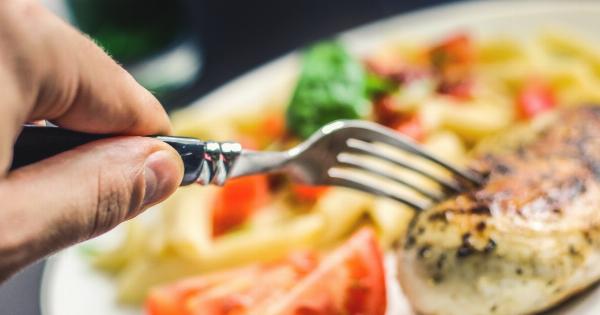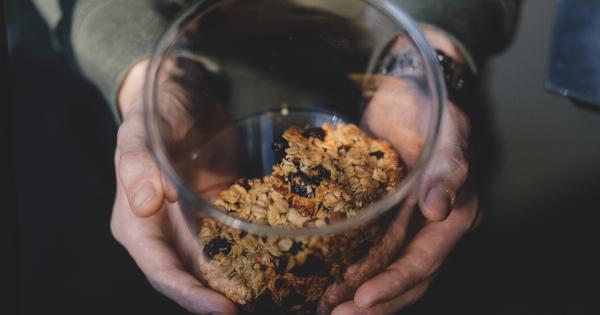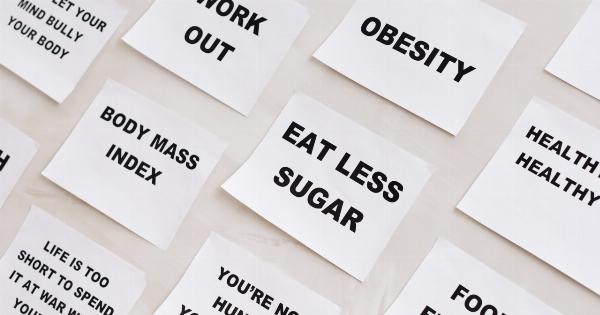Food is something that everyone needs to survive and thrive. However, our relationship with food can be complicated. Some people are able to enjoy food as a source of nutrition and pleasure without giving it too much thought.
For others, food dominates their lives, thoughts, and emotions.
Of course, there’s nothing inherently wrong with enjoying food or having a passion for cooking. But when our thoughts and behaviors around food become obsessive, it can have negative consequences for our physical and emotional well-being.
How do you know if you’re in a healthy relationship with food or if you’re fixating on it in an unhealthy way?.
Understanding Food Obsession
Food obsession, also known as food addiction or compulsive overeating, is a condition characterized by an intense preoccupation with food.
People with food obsession may constantly think about food, plan their meals days in advance, and experience intense cravings for certain foods. This can lead to a cycle of binging and restricting, in which the person feels out of control around food and then tries to regain control by severely limiting their intake.
There are many factors that can contribute to food obsession. Some people may have a genetic predisposition to addictive behaviors, while others may turn to food as a coping mechanism for stress, anxiety, or emotional pain.
In some cases, food obsession may be triggered by a traumatic event or a cultural pressure to achieve a certain body type.
Signs of Food Obsession
If you’re not sure whether your relationship with food is healthy or not, here are some common signs of food obsession:.
1. Obsessively planning meals and snacks
Do you spend hours each week planning your meals, calculating calories, and weighing your food? Do you get anxious or upset if you don’t have access to the foods you planned to eat? This may be a sign of food obsession.
2. Feeling out of control around food
Do you find yourself eating even when you’re not hungry, or continuing to eat even after you’re full? Do you eat secretly or in shame, hiding your food or feeling guilty after eating? These behaviors can be indicative of a larger problem with food fixation.
3. Having intense cravings for certain foods
Do you obsess over certain foods, feeling like you can’t go a day without them? Do you feel like you’re addicted to certain types of food, like sugar or carbohydrates? This may be a sign that your brain chemistry is reacting in an unhealthy way to certain types of food.
4. Using food as a coping mechanism
Do you turn to food as a way to deal with stress, anxiety, or difficult emotions? Do you feel like you can’t manage your feelings without food? This can be a sign of an unhealthy reliance on food to regulate your moods.
5. Feeling guilty, ashamed, or depressed about your eating habits
Do you feel like you’re constantly failing at controlling your eating, leading to feelings of shame or depression? Do you feel like other people judge you for your eating habits, leading to feelings of isolation or anxiety? These negative emotions can be a sign that your relationship with food isn’t healthy.
The Risks of Food Obsession
So, why is food obsession a problem? For starters, it can have negative consequences for your physical health. People with food obsession may be at risk for obesity, diabetes, heart disease, and other chronic illnesses.
They may also experience digestive problems, nutrient deficiencies, and other physical symptoms related to their eating habits.
Food obsession can also take a toll on your mental health. People with food obsession often experience anxiety, depression, and social isolation as a result of their eating habits.
They may also struggle with low self-esteem, disordered body image, and negative self-talk related to their appearance or their food choices.
When to Seek Help
If you’re concerned that you may have an unhealthy relationship with food, it’s important to seek help. You don’t have to struggle with food obsession on your own.
There are many resources available, including therapists, support groups, and online communities.
Here are some signs that it may be time to seek help:.
You feel like food dominates your thoughts and behaviors
If you’re constantly thinking about food, obsessing over your next meal, or experiencing intense cravings that you can’t control, it’s a sign that your relationship with food isn’t healthy.
You’re struggling with disordered eating habits
If you’re bingeing, purging, restricting your food intake, or engaging in other disordered eating behaviors, you should seek help immediately. These behaviors can be dangerous and are often a sign of a larger problem.
You feel out of control around food
If you feel like you can’t stop eating once you’ve started, or that you’re powerless to resist certain types of food, it’s a sign that you need help regaining control of your eating habits.
You’re experiencing negative physical or emotional symptoms
If your eating habits are causing you to feel sick, fatigued, or emotionally distressed, it’s a sign that you need to make changes. You should seek help to identify the root of the problem and develop a plan to improve your health.
Conclusion
Food is an important part of our lives, but it’s not worth sacrificing our physical or emotional well-being over. If you’re concerned that your relationship with food is unhealthy, seek help and support.
There’s no shame in asking for assistance, and you deserve to feel good about your body and your eating habits.





























